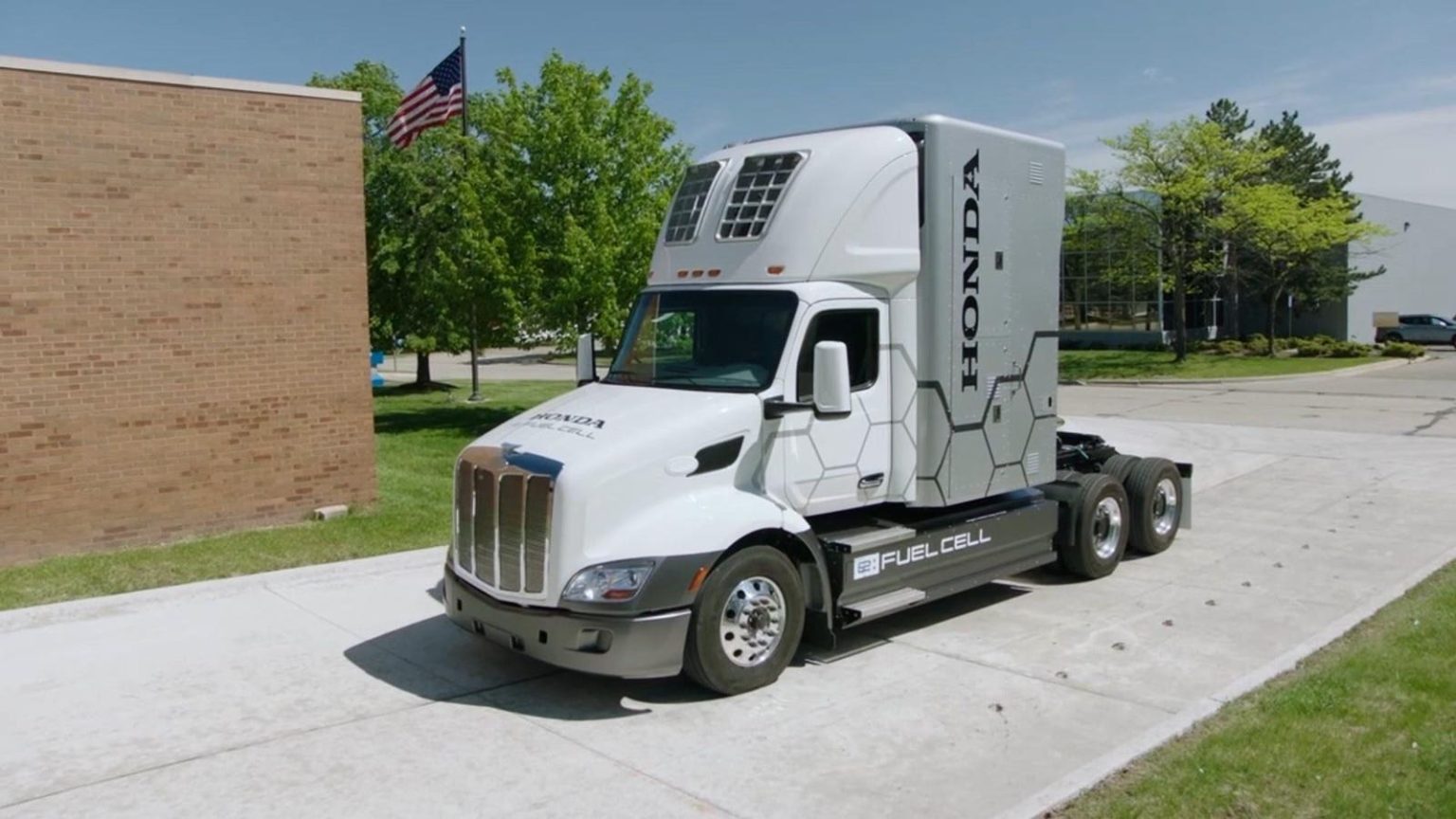Honda, a pioneer in hydrogen fuel cell technology in the automotive industry, is set to debut a Peterbilt semi concept powered by fuel cell modules in collaboration with General Motors on May 20. This marks Honda’s entry into the heavy duty truck market, a market segment that has seen interest from other major truck manufacturers like Toyota, Kenworth, Hyundai, Daimler Truck, Volvo Group, and Traton. The focus on fuel cell technology in heavy trucks is aimed at decarbonizing long-haul freight operations, offering a range of over 400 miles and a quick 10-minute refuel time.
While battery electric semis work well on short to medium range routes, the weight of batteries reduces the available payload and requires high power levels for charging. Fuel cell trucks, on the other hand, offer similar weight to diesel equivalents and can be refueled quickly. However, the main challenge with fuel cell technology remains the lack of hydrogen filling stations. Currently, there are only 56 public hydrogen stations in the US, all located in California. This lack of infrastructure has led to the preference for battery electric vehicles in the light duty vehicle segment.
Despite the challenges of hydrogen infrastructure, major automakers like GM, Honda, Toyota, and Hyundai are focusing on alternative applications of fuel cell technology, including commercial vehicles, stationary power stations, and construction equipment. Honda’s collaboration with GM has led to the development of fuel cell modules for military vehicles, trains, aircraft auxiliary power units, and trucks. The concept truck that Honda is debuting at the ACT Expo in Las Vegas is based on a Peterbilt Model 579EV chassis equipped with 3 80kW fuel cell modules and a 120-kWh lithium ion battery.
The 240kW total output from the fuel cell modules is fed by high pressure compressed hydrogen tanks with 82-kg storage capacity, providing a range of 400 miles at a 41-ton gross combined weight rating. The truck retains the original 500-kW electric propulsion system of the Model 579EV, showcasing the potential for a combination of fuel cells and batteries in decarbonizing the transportation industry. Both technologies are expected to play important roles in the future transportation ecosystem, harnessing renewable energy to produce hydrogen for various applications.
While the Honda-powered truck is currently a concept, there is potential for the integration of renewable energy sources to produce hydrogen and transport energy for multiple applications. The development of fuel cell technology in heavy duty trucks marks a significant step towards reducing emissions in the transportation sector and achieving sustainability goals. With collaboration between automakers and advancements in infrastructure, the adoption of fuel cell technology in heavy trucks is poised to revolutionize long-haul freight operations and contribute to a cleaner environment.


